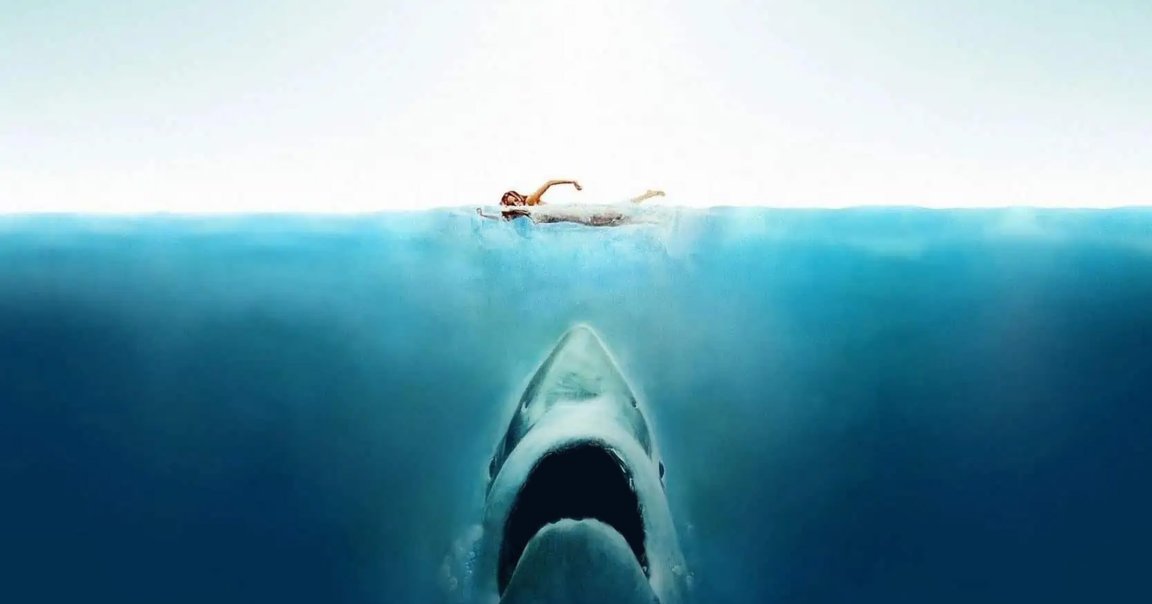
Sharks have been on this planet for more than 400 million years. They’re older than the first trees, the North Star, and even the rings of Saturn. They’ve seen and been through it all — but the mounting effects of human driven climate change could be what finally proves too much for these ancient beings.
As we continue to pump astronomical amounts of carbon dioxide into the atmosphere, nearly a third of it gets absorbed by the ocean, gradually making its water more acidic.
For sharks, the consequences could be horrifying. New research suggests that this acidifying could dissolve and weaken shark teeth, severely damaging the ability of these apex predators to feed and defend themselves. Not even their famed ability to regrow their rows of deadly chompers could be enough to offset the phenomenon.
“Shark teeth, despite being composed of highly mineralized phosphates, are still vulnerable to corrosion under future ocean acidification scenarios,” Maximilian Baum, a biologist at Heinrich Heine University in Germany, and lead author of a new study published in the journal Frontiers in Marine Science, said in a statement about the work. “They are highly developed weapons built for cutting flesh, not resisting ocean acid. Our results show just how vulnerable even nature’s sharpest weapons can be.”
Currently, the average pH level of the ocean is 8.1. In the some 200 years since the industrial revolution began, it’s dropped by about 0.1 pH units, according to NOAA, representing a 30 percent increase in acidity. One study projects that the ocean could plunge to a pH level of 7.3 by 2300, if current rates of emissions hold. Meanwhile, some research has found that current pH levels are already damaging denticles, the tiny serrated scales that form the top layer of a shark’s skin.
“Since ocean acidification is known to damage calcified structures like corals and shells, we wanted to investigate whether shark teeth, especially in species… that swim with their mouths open to ventilate their gills and have constant seawater exposure, might also be vulnerable,” Baum told CNN.
In an experiment, the researchers collected shark teeth that were shed by blacktip reef sharks — a vital predator in tropical coral reefs — housed in a local aquarium. For eight weeks, they submerged one batch in a tank containing water with the ocean’s current pH of 8.1, and another batch in a tank with the projected pH of 7.3.
It was immediately clear which set of teeth were worse off, after examining them with electron microscopy.
“We observed visible surface damage such as cracks and holes, increased root corrosion, and structural degradation,” said coauthor Sebastian Fraune, head of the Institute of Zoology and Organismic Interactions at HHU, in the statement.
Bizarrely, the acid-bathed teeth had a higher circumference — not because they actually grew, but because their surfaces were more irregular. Bigger teeth may sound like an advantage, but not if they’re weakened.
“Many shark species use several rows of teeth at once, and individual teeth can remain in use for weeks or even month,” Baum told CNN, “so cumulative damage can reduce feeding efficiency and increase energy demands, especially in species with slower replacement cycles and many rows of teeth that are used at the same time.”
It’s not a study that perfectly simulates real-world conditions, professor of marine ecology at the University of Adelaide in Australia Ivan Nagelkerken cautioned CNN. The teeth were already shed and came from aquarium sharks. And while sharks generally do keep their mouths open all the time to help them breathe, it’s unclear if simply soaking teeth in acidified water for months on end is a good simulation of that reality. Moreover, the study also relied on a pretty extreme projection of ocean acidification.
Baum agrees, but argues this is an important first foray into an understudied area.
“Our study focused on naturally shed teeth because there’s currently very little data on this topic,” he told CNN. “By isolating the chemical effects of acidified seawater on the mineralized structure itself, we want to provide a baseline for understanding vulnerability of shark teeth.”
More on climate change: The Sounds of a Dying Glacier Might Make You Cry